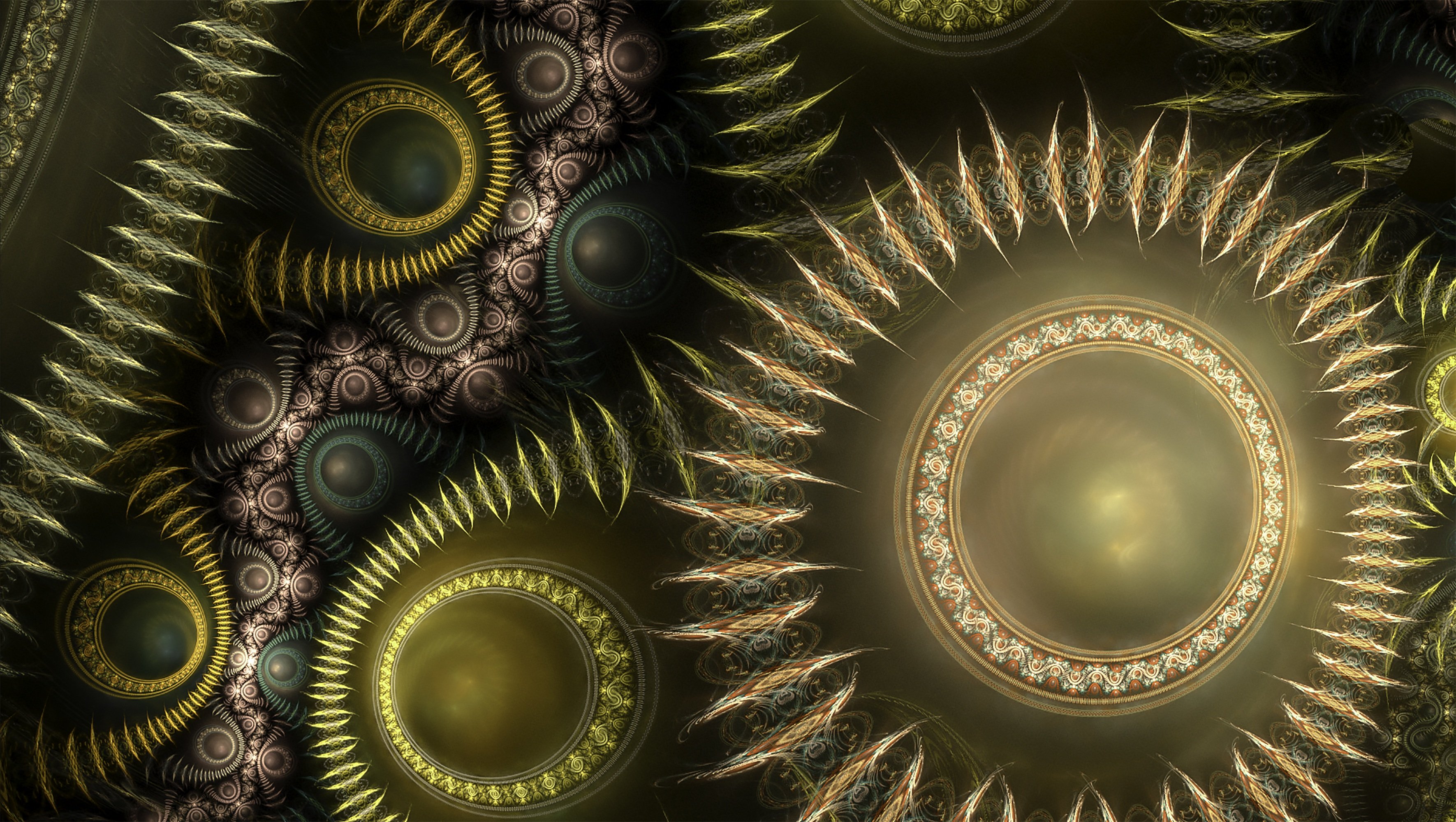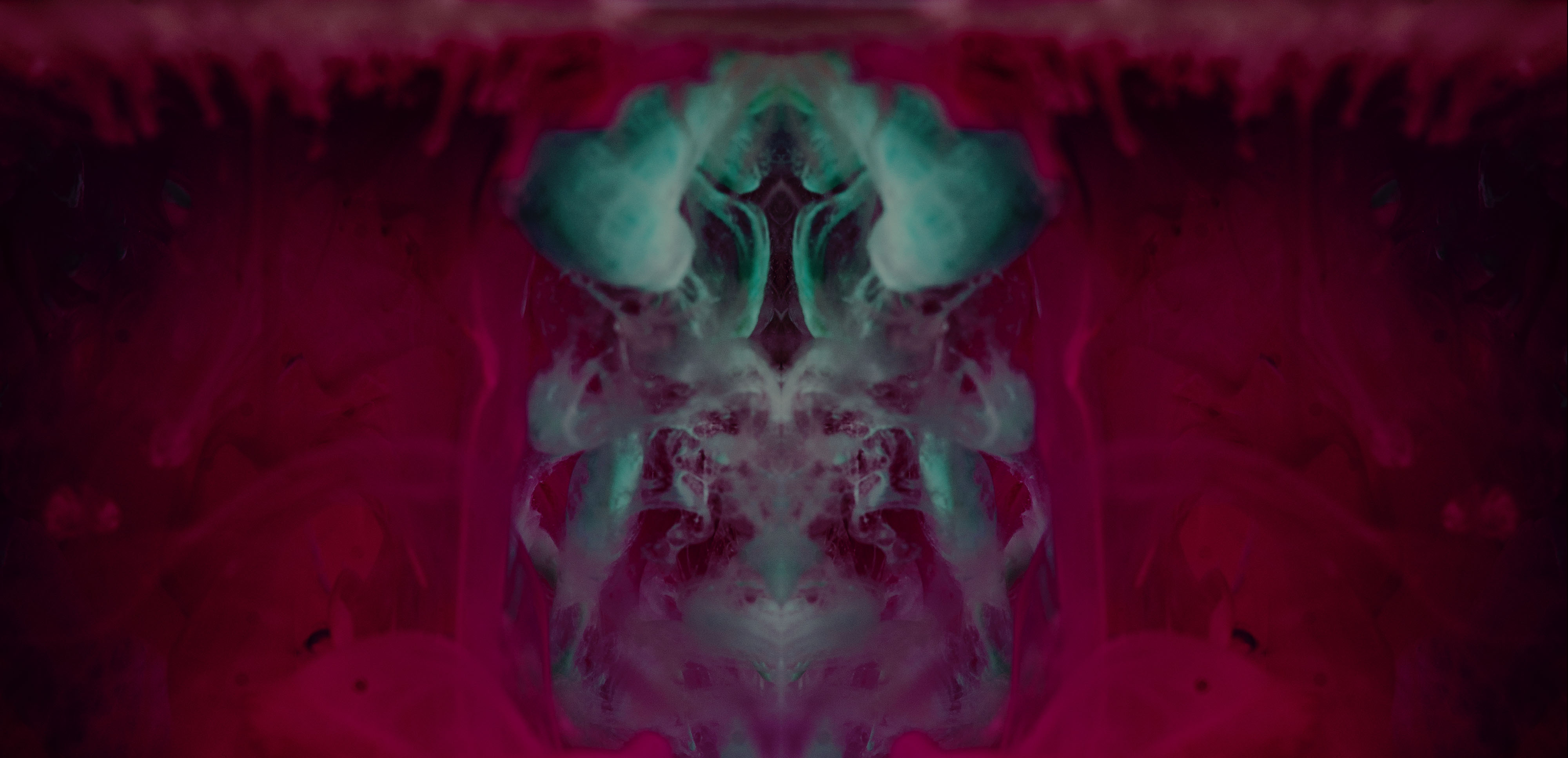
Kaostech is one of the many forms of technomancy. Like the other technomantic arts, it is not truly technological or magical. It does not function according to the pure rules and logic of natural science nor the transmutative animism and sympathetic laws of alchemy. Its existence is no dependent upon the power of magic or the whim of the gods.
Kaostech is something different. It is a harnessing of primal chaos, but it is also an embodiment and an expression of that primal chaos. It is corruption and destruction given form. It is something that could not exist without a perversion of the natural order — and the creation of that perversion is at the very heart o the kaostech device’s function.
Kaostech is also known as the technology of the taint. Its devices have been called chaos machines, demon devices, and artifacts of the taint.
FORMS OF KAOSTECH
Kaostech devices can be roughly divided into two categories: bones of steel and betrayals of the flesh.
BONES OF STEEL: These are mechanical devices designed to harness and use the powers of chaos. Although their intimate connection to chaos, and their manipulation of chaotic forces, often make the construction of bones of steel seem illogical or incomprehensible, they are fundamentally machines. They are built of metal and glass and cloth. Inside they maybe filled with a baffling array of wires and gears and tubes, but their function is still easily comprehended once it has been demonstrated.
BETRAYALS OF THE FLESH: Betrayals of the flesh, rather than being mechanical devices, are living organisms. They are grown in alchemical vats, harvested from corpses, or perverted from natural creatures. Some betrayals of the flesh are independent creatures of a sort — they eat and breathe and grow. A few of them are even capable of movement.
Other betrayals of the flesh, however, are designed to be used in a parasitic symbiosis with another creature: They are grafted on as replacement parts or created through the manipulation and surgical alteration of the host creature itself.
KAOSTECH SKILLS
CRAFT KAOSTECH (Intelligence + Special) (Trained Only)
Check: A character can make a Craft Kaostech check to build, repair, or modify a kaostech device. It can also be used to identify and activate newly encountered kaostech safely. The DC of the check depends on what the kaostechnician is attempting to accomplish.
Create Kaostech Device (Weekly Progress): The DC required to create a kaostech item is listed in the item’s description. The DC of the check, the skill check result, and the item’s price determine how long it takes to make a particular item.
- Find the item’s price in silver pieces (1 gp = 10 sp).
- Find the DC listed with each kaostech item.
- Pay one-third of the item’s price for the cost of raw materials and expend a splash of raw chaos.
- Make a Craft Kaostech check representing one week’s work.
- If the check succeeds, multiply the check result by the DC of the item. If the result is at least equal to the price of the item in silver pieces, then the kaostechnician has completed the item.
- If the result doesn’t equal the price, then it represents the progress the kaostechnician has made this week. Record the result and make a new Craft Kaostech check for the next week. Each week the kaostechnician makes more progress until their total reaches at least the price of the item.
If the check is failed by 4 points or less, the kaostechnician makes no progress. If the check is failed by 5 points or more, the kaostechnician ruins half the raw materials (and the cost of those materials must be paid again).
Create Kaostech Device (Daily Progress): Checks can be made by the day instead of by the week. In this case, evaluate the kaotechnician’s progress (check result times DC) in copper pieces instead of silver pieces.
Determine Activation Method: A kaostechnician can identify the activation method of a kaostech device by make a Craft Kaostech check (DC 20).
Identify Kaostech Device: A kaostechnician can attempt to identify a kaostech device by making a Craft Kaostech check. The DC is equal to the item’s original craft DC + 5.
Repair Kaostech Device: Generally, a kaostechnician can repair an item by making checks against the DC required to originally make the item. The cost of repairing an item is one-fifth its price. Due to the unstable nature of kaostech, if the repair check fails, the kaostechnician completely destroys the item; no further attempts are possible.
Repairing a kaostech item requires a splash of raw chaos.
Modifiers – Determining Activation & Identification: Craft Kaostech checks made to determine the activation method of a kaostech device or identifying a kaostech device are made easier or more difficult depending on the kaostechnician’s familiarity with the item in question.
Extremely Chaotic: If the character is extremely chaotic or maybe even a little made (a determination made at the DM’s discretion) they gain a +2 bonus on their check.
Extremely Lawful: If the character is extremely lawful or logical (a determination made by the DM) they suffer a -2 penalty to their check.
Familiar with Similar Item: If the character has used or dealt with a kaostech item similar to the one currently being examined they gain a +4 bonus to their check.
Obvious Use: If the device’s use is straightforward or obvious (goggles, for example) the character gains a +10 bonus on their check to determine the item’s method of activation. (They do not, however, gain any bonus for identifying the item’s function.)
Unfamiliar with Kaostech: If the character is unfamiliar with kaostech or believes the item to be magical, they suffer a -4 penalty to their check.
Try Again: No, except for creating a new kaostech device (although a failure by 5 or more points results in losing half the raw materials from the attempt).
Special: In addition to their Intelligence modifier, a kaostechnician’s Wisdom modifier also applies to Craft Kaostech checks. However, you must invert the Wisdom modifier so that a bonus acts as a penalty and vice versa.
Example: A character with a -2 Wisdom penalty gains a +2 bonus on their Craft Kaostech checks. On the other hand, a character with a +3 Wisdom bonus suffers a -3 penalty on their Craft Kaostech checks.
To create, repair, or identify a kaostech device the kaostechnician must have the right tools. Outfitting a kaostech creation laboratory costs 10,000 gp. One suitable only for repairs and identification costs 1,000 gp.
Untrained: If you have no ranks in Craft Kaostech, you can make an Intelligence test modified by your inverted Wisdom modifier to determine the activation method of a kaostech device.
CHAOS SURGERY (Intelligence + Special) (Trained Only)
Check: A chaos surgeon can perform surgical procedures to implant intrinsic kaostech devices into the body of a living creature or replace portions of a living body with kaostech.
Attach Intrinsic Device: Each type of intrinsic device has its own Chaos Surgery DC and requires a specific amount of time to perform the procedure, as specified in the item’s description.
 If the Chaos Surgery test is successful, the intrinsic kaostech device has been successfully grafted, implanted, or otherwise attached. The subject must enter a recovery period, the length of which is specified in the item’s description. During this time the subject requires complete bed rest. If the subject undertakes any strenuous activity or suffer any damage during the recovery period, they must make a Fortitude save with a DC equal to the original Chaos Surgery DC required to attach the device. If they fail the saving throw, the kaostech device fails and does not function.
If the Chaos Surgery test is successful, the intrinsic kaostech device has been successfully grafted, implanted, or otherwise attached. The subject must enter a recovery period, the length of which is specified in the item’s description. During this time the subject requires complete bed rest. If the subject undertakes any strenuous activity or suffer any damage during the recovery period, they must make a Fortitude save with a DC equal to the original Chaos Surgery DC required to attach the device. If they fail the saving throw, the kaostech device fails and does not function.
If the Chaos Surgery test is failed, the intrinsic device automatically suffers chaotic failure (and has the standard 1 in 20 chance of suffering chaotic backlash or chaotic necrosis). In addition, the subject suffers 5d10 damage and 2d6 points of Constitution damage. The subject must still wait through the recovery period. If the subject undertakes any strenuous activity or suffers any damage during the recovery period, they must immediately make a Fortitude save (DC 15 + damage taken) or suffer 1d10 points of damage and 1 point of Constitution damage. (They do not need to make a second save as a result of damage taken from this failed saving throw.)
A chaos surgeon cannot attach an intrinsic device to themselves.
Treat Chaotic Necrosis: A chaos surgeon can revitalize a betrayal of the flesh that has suffered chaotic necrosis. This treatment requires 10 minutes, a successful Chaos Surgery check (DC 25), and materials worth 1/10th the original creation cost of the device.
Modifiers:
Distractions: If the chaos surgeon is distracted (by loud noises or nearby combat, for example) while using the Chaos Surgery skill, they suffer a -2 penalty to their check.
Filth Environment: Making a Chaos Surgery check in a non-hygienic environment imposes a -2 penalty to the check. (A filthy area may also force the subject to make a Fortitude save to resist disease, as the DM’s discretion.)
Try Again: Yes
Special: In addition to their Intelligence modifier, a chaos surgeon’s Wisdom modifier also applies to Chaos Surgery checks. However, you must invert the Wisdom modifier so that a bonus acts as a penalty and vice versa.
To make a Chaos Surgery check, the chaos surgeon must have the proper tools (a scalpel, grips, cutters, forceps, rags to soak up the blood, and so forth). This surgical kit costs 1,000 gp.
Untrained: Chaos Surgery cannot be used untrained.
Go to Part 2: Using Kaostech



















